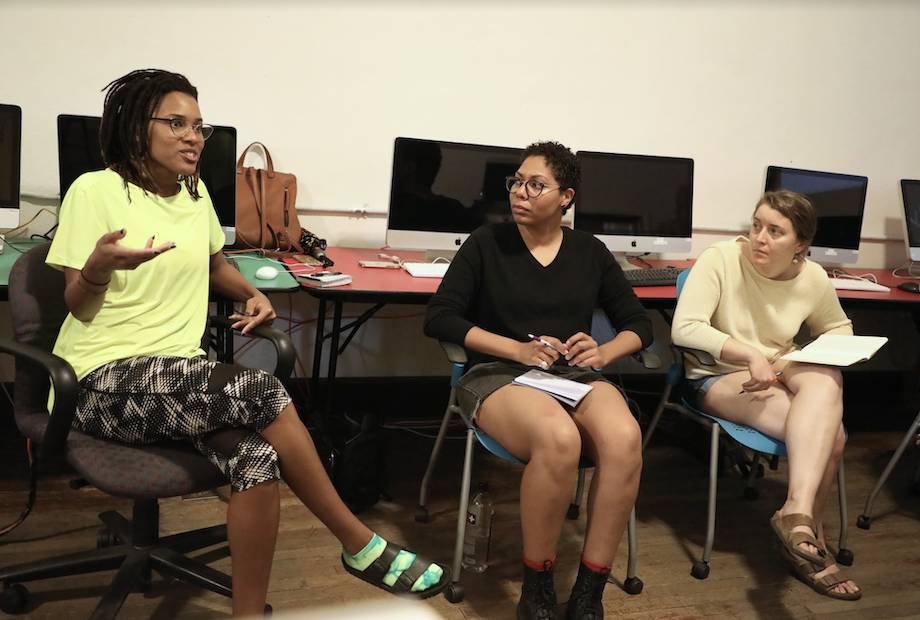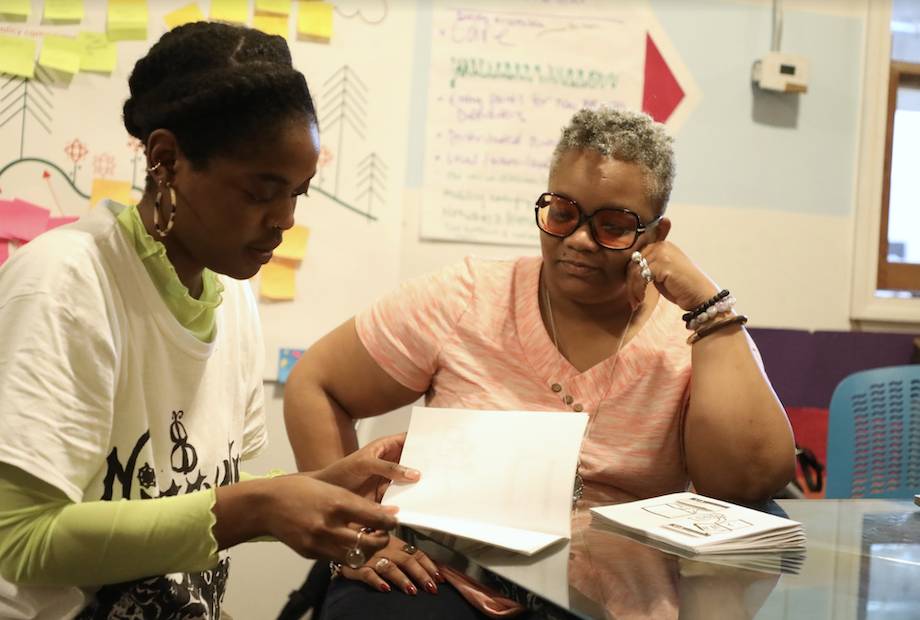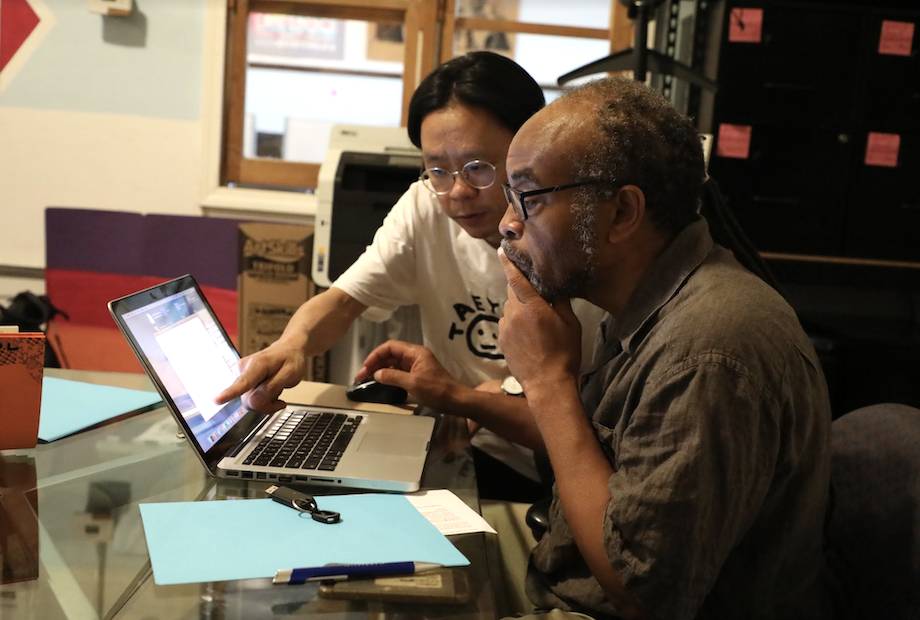Poetic Computation: Detroit 2019
- 1-week session: August 19-25, 2019.
-
Location: Talking Dolls, 7145 E Davison St Detroit, MI 48234 - Application closed on July 1, 2019. If you have any question, please email info@sfpc.io
- Meet the Teachers Salon on August 23, 2019 at the Jam Handy
- Showcase on August 25, 2019 at the Talking Dolls
Please join the School for Poetic Computation (SFPC) in partnership with the Talking Dolls for a summer session in Detroit, Michigan. Daily classes range from computational poetry, building electronics, critical theory and the history of the manufacturing industry in Detroit. There are lectures, student-led skill sharing sessions and workshops with visiting artists, walking tours, field trips to community spaces and family dinners. Together we will uncover how coding is more than what happens behind your screen.
We are specifically looking for Detroit-based practitioners including artists, designers, activists and educators. We will prioritize applicants who are underrepresented in art and tech spaces, including but not limited to, people who identify as Queer and Trans people of color (QTPOC) and/or Disabled, Deaf or Hard of Hearing (HoH). Students of all levels of coding experiences are welcome! We encourage patience to learn the fundamentals. We encourage you to be willing to to reconsider your relationship to technology, habits and the larger environment. We are supported by Detroit-based organizations including the Detroit Community Technology Project and the Room Project.
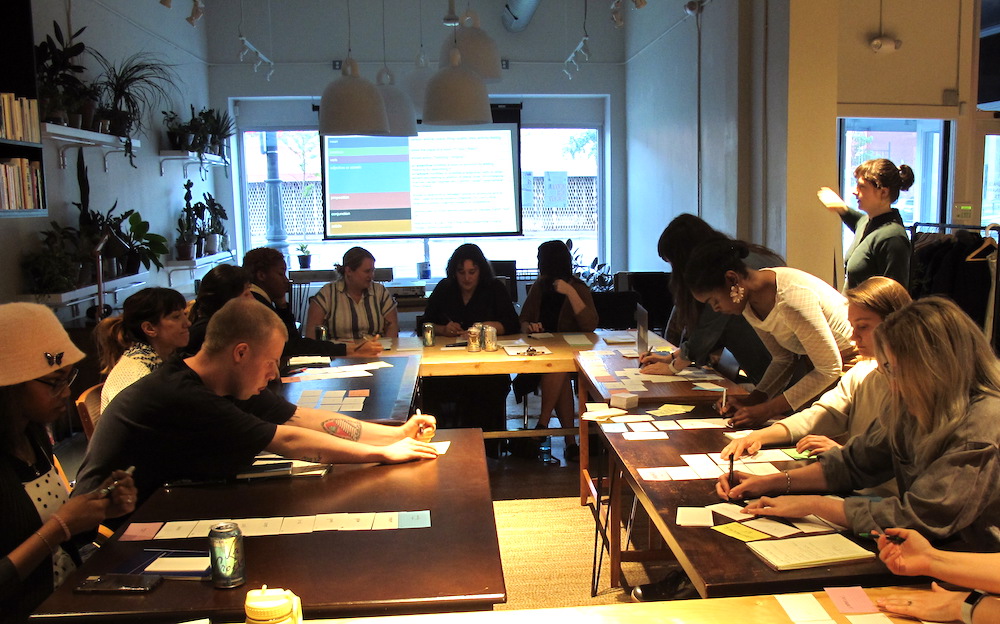 Poetic Computation Workshop at the Room Project, Detroit, 2019.
Poetic Computation Workshop at the Room Project, Detroit, 2019.
What will happen during the week?
Classes are held in the evenings with workshops and field trips in the afternoon throughout Sunday-Saturday from 1–9:30pm. We will program in family dinners and relaxation time. The session will end with a student showcase and party on a Saturday afternoon in August, where students can invite their family and friends to see presentations of their favorite class projects.
Students will have access to the tools and materials for the week of the session to work on projects. Mentors will be readily available for technical, conceptual, and artistic guidance.
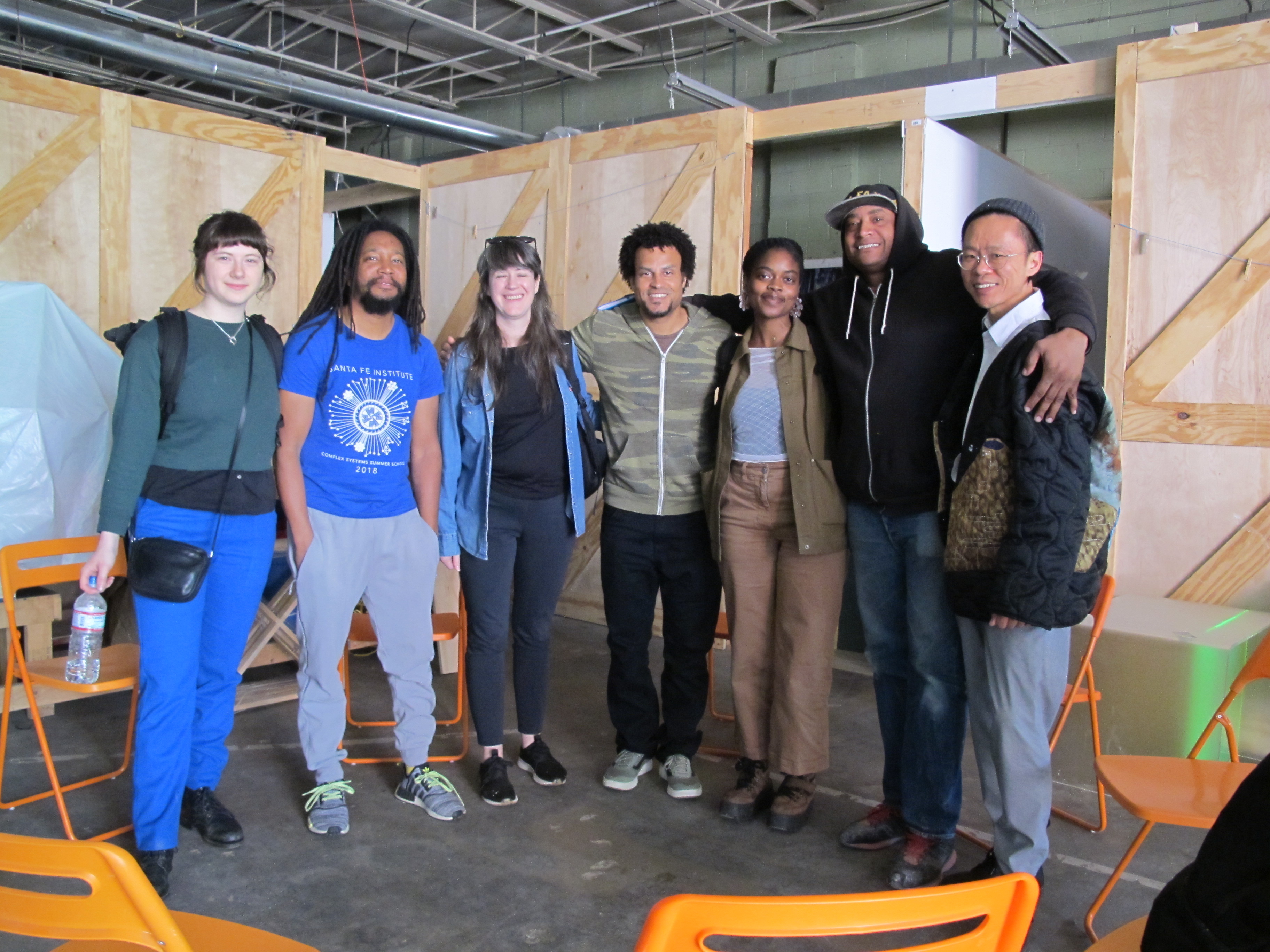 SFPC organizers and Talking Dolls, Detroit, 2019.
SFPC organizers and Talking Dolls, Detroit, 2019.
What are SFPC classes like?
Video by Spring 2018 student Nitcha Fame Tothong.
Check out more weekly video recaps of past classes here, our blog and Instagram.
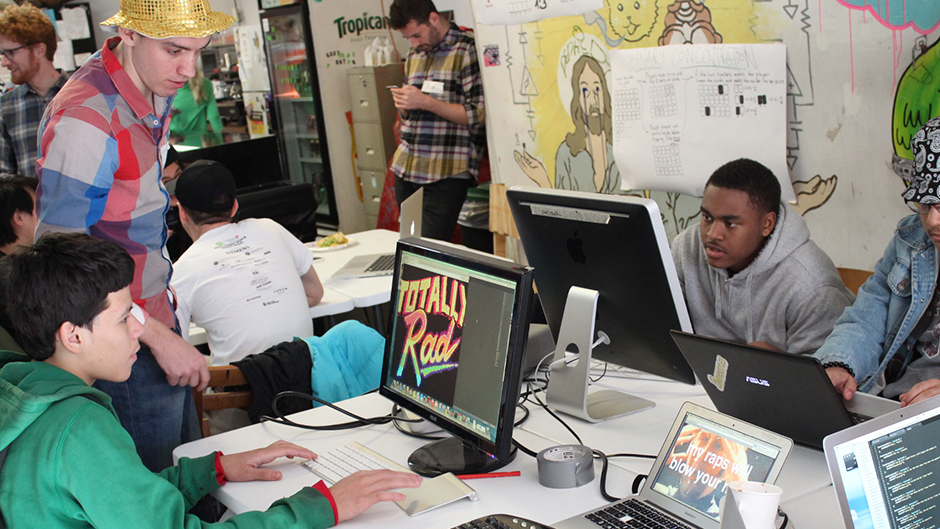 Poetic Science Fair, community program at the Silent Barn, 2015.
Poetic Science Fair, community program at the Silent Barn, 2015.
 Project by Fall 2018 student Galen Macdonald, 2018.
Project by Fall 2018 student Galen Macdonald, 2018.
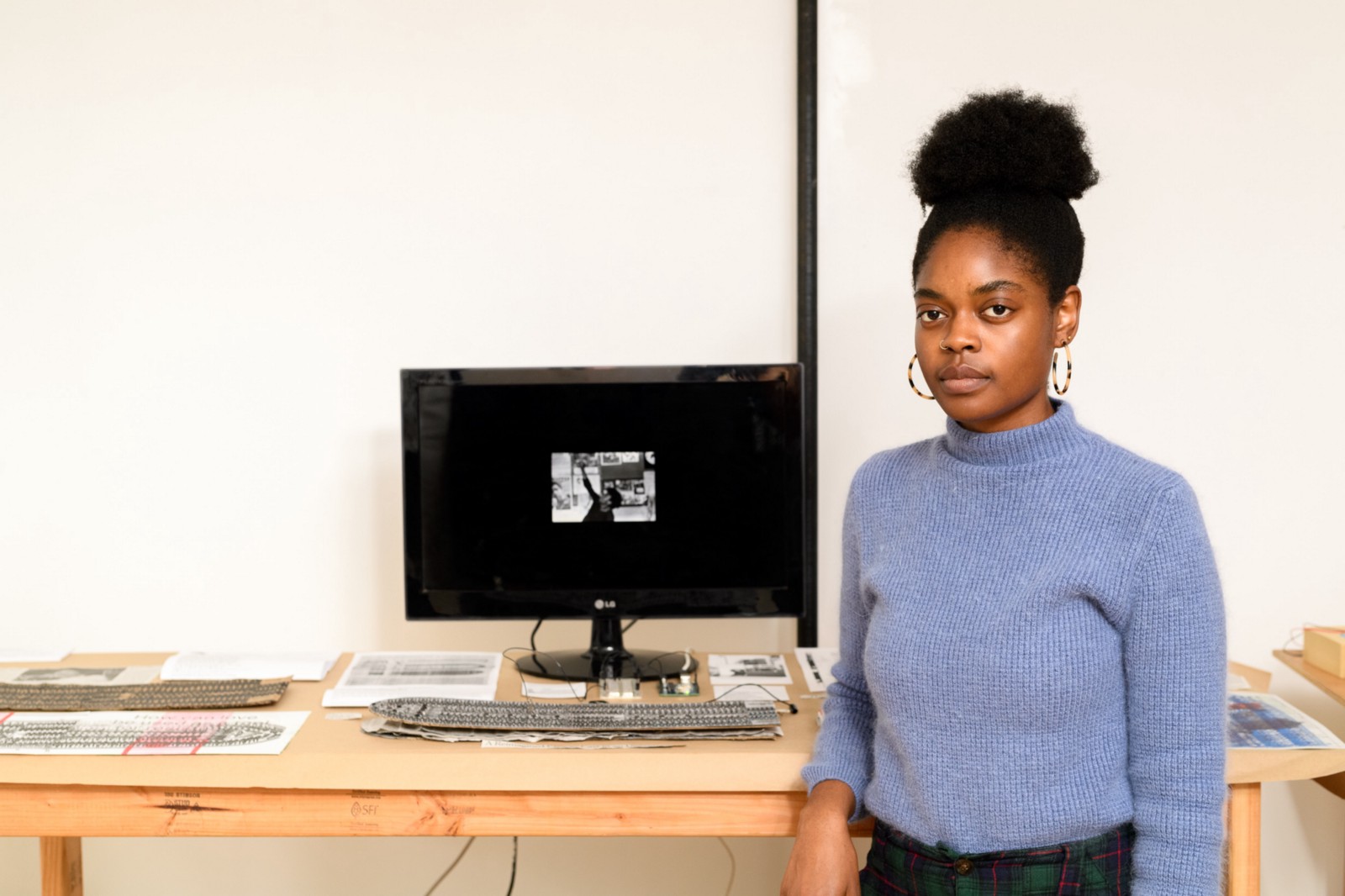 Project by Fall 2018 student Neta Bomani, 2018.
Project by Fall 2018 student Neta Bomani, 2018.
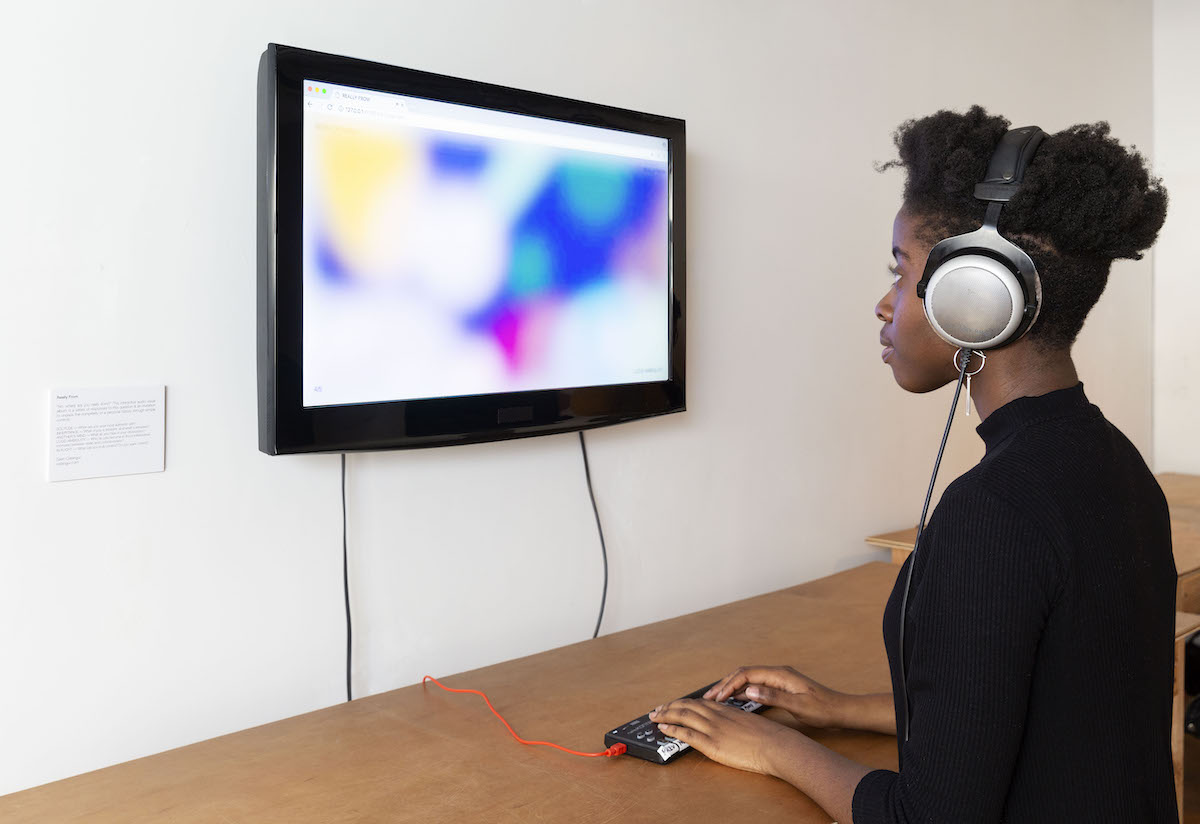 Project by Spring 2018 student Sean Catangui, 2018.
Project by Spring 2018 student Sean Catangui, 2018.
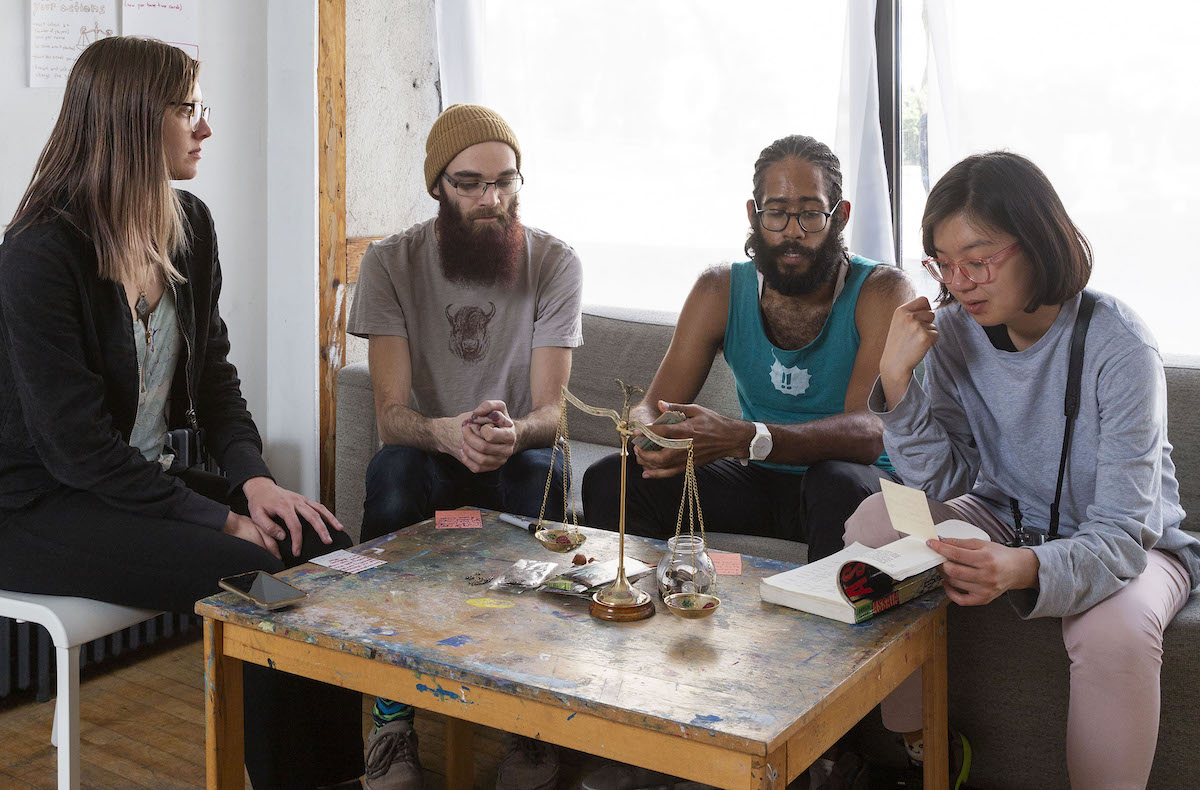 Project by Spring 2018 student Nabil Hassein, 2018
Project by Spring 2018 student Nabil Hassein, 2018
How does the application process work?
We accept up to 15 students based on their application and video interview. Our program is inclusive of beginners with no prior experience with art or technology. SFPC and Detroit-based partners will select students with clear intentions for joining the camp, and those who have a plan to share the knowledge with their community. Application Deadline is July 1. We will respond to your application by July 15. We anticipate the admission will be highly competitive. We encourage you to apply early!
SFPC is committed to building a safe environment free of discrimination and harassment. No form of harassment will be tolerated. Harassment includes, but is not limited to verbal comments that reinforce social structures of domination related to gender, gender identity and expression, sexual orientation, skill level, disability, physical appearance, body size, race, age, or religion.
All application decisions at SFPC are based on educational needs, accessibility needs and individual needs and qualifications, without hegemonic regard to race, color, religion or belief, family or parental status, or any other status. SFPC does not tolerate discrimination or harassment based on any of these characteristics. SFPC encourages applicants of all ages, disabilities and educational backgrounds.
Why are we running the session in Detroit?
We respect the complex and rich history of Detroit as a city of resilient creatives. We are inspired by Detroit-based artists and collectives such as Complex Movements, an artist collective supporting the transformation of communities by exploring the connections of complex science and social justice movements through multimedia interactive performance work. We are inspired by the acclaimed Allied Media Conference for DIY media makers and activists. We are inspired by Raven Stubbs, whose project at Recess Art involved a “workshop series and ethnodramaturgical project exploring the role of class within contemporary Black life and community.”
We are learning about the challenges of outsiders approaching cities like Detroit. In Transplant exploits: Detroit’s savior complex, Taylor Renee Aldridge wrote, “I urge you to consider the lives that have been lived here. The trauma experienced in these lives. Loss of homes, jobs, and other prized possessions. Consider these narratives as you aim to locate remedies for innovation. We, as Detroiters, welcome change but not at the expense of exploiting our own narratives and spaces for your personal gain.”
Read more about our intentions in our Trip report #1, May 1, 2019 and Trip report #2, August 2, 2019.
How much is tuition?
Tuition is $0-500 on a sliding scale. If you make more than the Detroit median income of $27,838, according to the U.S. Census in 2018, please let us know how much you are willing to pay. No prospective students will be turned away for lack of funds. SFPC tuition goes directly to paying for the teachers, organizers, materials and space that make sessions like this possible.
What is expected of me?
- Participate in all classes and thoughtfully engage with your classmates and teachers.
- Adhere to the SFPC Code of Conduct.
- Participate in the Student Showcase.
- We are looking for autodidacts from all backgrounds who are curious, generous and open.
- We welcome students with a broad array of technical experiences—no coding experience is required, but a basic comfort level with technology is preferred.
- If you can, please bring your own laptop (Mac/PC/Linux). Some laptops will be provided for students in need.
Where is the session located?
The session will be hosted at Talking Dolls, an experimental studio on 7145 E Davison St, Detroit, MI 48234.
Organizers

SFPC Teachers: American Artist, Sam Lavigne, Lauren Gardner, Nabil Hassein, Taeyoon Choi, April Soetarman
Poetic Computation: Detroit is organized by Taeyoon Choi, Lauren Gardner, Melanie Hoff, and Neta Bomani, with SFPC teachers and alumni. Detroit-based partners and collaborators include the Detroit Community Technology Project, the Talking Dolls, the Work Department and more.
The curriculum
Co-organizers
Teachers
- American Artist
- Ann Haeyoung
- Colin Wang
- Nabil Hassein
- Danielle Aubert
- Ron Watters
- Andrea Cardinal
- Janice Gates
- Tawana Petty
Public events
- Meet the Teachers Salon on August 23, 2019 at the Jam Handy
- Showcase on August 25, 2019 at the Talking Dolls
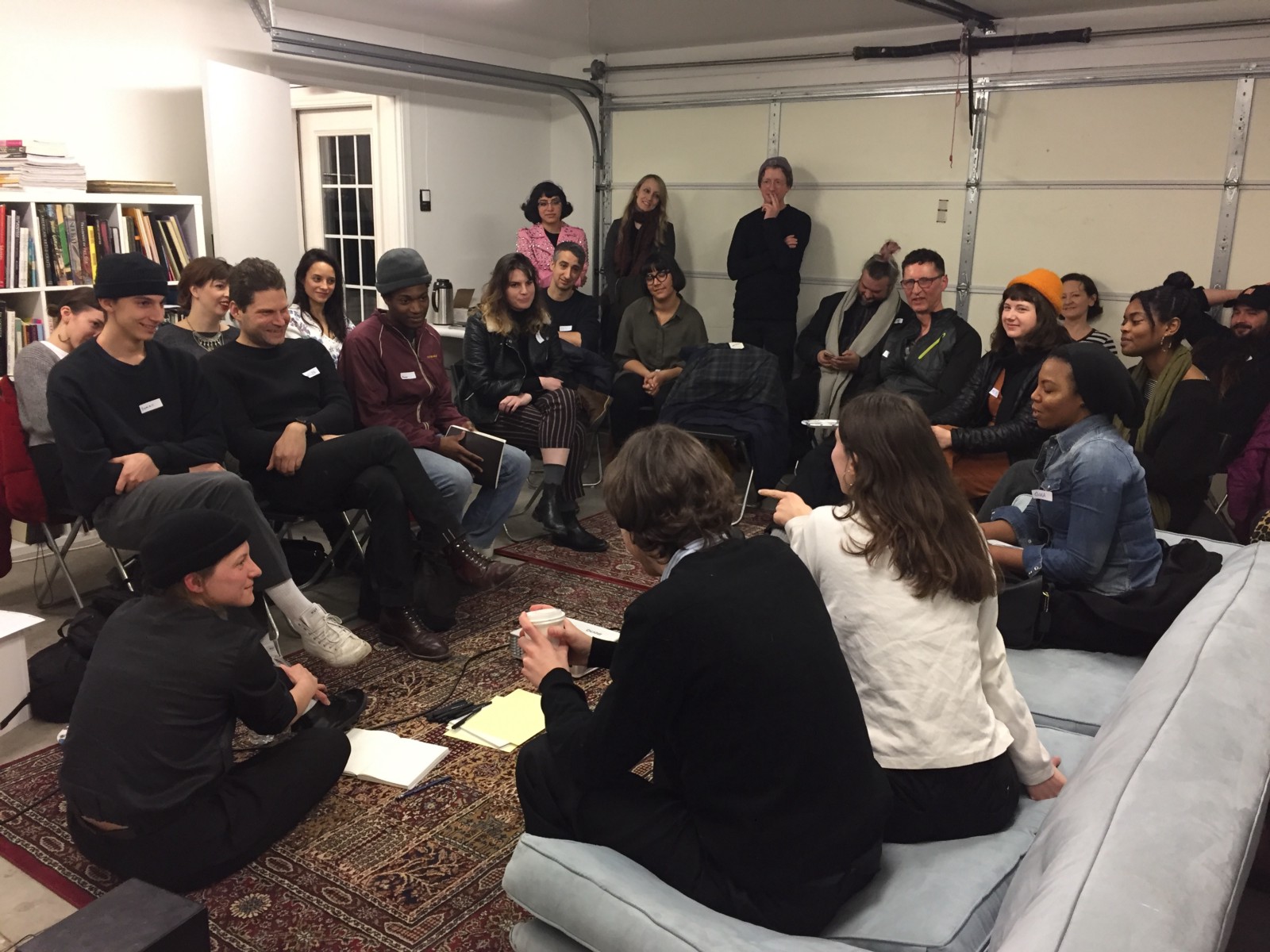 Study Group, Mike Kelley’s Mobile Homestead at MOCAD, 2019.
Study Group, Mike Kelley’s Mobile Homestead at MOCAD, 2019.
Support
Poetic Computation: Detroit is supported by the Knight Foundation.
Slideshow photographs by Russel Stewart.
Contact us
Feel free to contact us with any questions about the Poetic Computation: Detroit at info@sfpc.io.
SFPC is filled with amazing people and an open mindset to learning, and doing. It has taught me different ways of thinking, ones that I would be sure to bring back to my endeavors outside of the art world.
I'm half way through the program and I'm already missing being here. SFPC was a much needed breath of fresh air in my hectic creative existence, an unlikely place to stop and remind myself what was it I was into in the first place.
SFPC messed up my life a little bit. Actually, I think it's going to mess it up a lot. Before this program I thought I knew what I was doing and what the shape of my life was going to look like. Now I don't and each day I wake up scared I won't get to be a part of a community like this again. Everyday also now brings a fresh but welcome creative terror to overcome. Also I think I may have ended up moving to New York accidentally.
SFPC is the best place you can explore your interest as much as you want and the place you start to write your own poem.
SFPC is not really a school or a course — it is more like a door into an extraordinary world. It is driven by passion, kindness and the thrill of teaching and learning. I would love to live those inspiring weeks all over again.
SFPC was amazing — life-changing even — i want to do all this stuff for the rest of my life!
I've never been consistently surprised and inspired as much as at SFPC.
If you think SFPC is what you think, that will be wrong. SFPC is a space for a group of people who badly want to try something new. SFPC will become a spirit embedded in your blood which makes you think things with a different angle, just like its motto: more poetry, less demo.
I learned a lot at SFPC. It was only a 2 week program last time, but I learned many things from other participants and got the chance to explore and fail freely. SFPC helped me to reshape the way I think. It's your turn.
School For Poetic Computation is equal parts The Factory, childhood blanket fort, and mad scientist's lab. I learned a ton from the teachers and the whole SFPC community in a huge collaborative and exploratory environment.
Attending SFPC is like walking into an all day buffet supplied with food from hyper-talented chefs. There's more than you could ever consume, naturally, and you will most likely find yourself requiring a digestion period, but holy crap is it tasty.
My takeaway from SFPC: Never settle for code that isn't at least a little bit magic
In SFPC I found a great community and it gave me the confidence to take on coding projects I couldn't have done before.
SFPC is the purest, most honest exchange of knowledge and experience among peers I have ever experienced. It is a supportive space where everyone learns from everyone, and bridges are built that continue to be strengthened for years to come. You won’t get a certificate or a title at the end of it, but I would be amazed if you ever looked at your world the same again. I haven’t.
